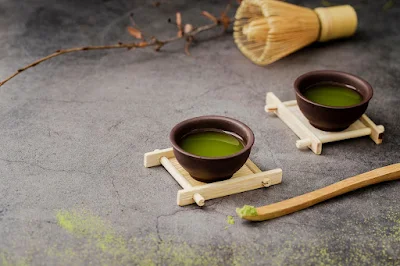Tea is more than just a beverage—it’s a symbol of history, tradition, and community in many cultures around the globe. From the bustling streets of India to the serene tea houses of Japan, tea brings people together, creating moments of connection and reflection. Whether it’s through elaborate ceremonies or simple daily routines, tea has woven itself into the social and cultural fabric of numerous societies. Let's explore the rich cultural significance of tea in different parts of the world and how it continues to play an important role in fostering community and tradition.
Tea in China: A Tradition Rooted in History
China is the birthplace of tea, and its significance runs deep in Chinese culture. Tea was first discovered over 4,000 years ago and has since evolved into a symbol of harmony, respect, and purity. The traditional Chinese tea ceremony, known as Gongfu Cha, emphasizes the art of brewing tea. This ritualistic preparation allows participants to slow down, focus on the tea's aromas, flavors, and the social connection it fosters.
Tea is also deeply integrated into Chinese philosophy, often symbolizing balance, health, and tranquility. The offering of tea is a gesture of respect in Chinese culture, making it central to many family and social gatherings.
Japan’s Reverence for Matcha and Tea Ceremony
In Japan, tea isn't just a drink—it's an art form. The Japanese tea ceremony, or Chanoyu, centers around matcha, a powdered green tea, and follows principles of wabi-sabi—a philosophy that finds beauty in simplicity and imperfection. The Japanese tea ceremony is a carefully orchestrated practice rooted in Zen Buddhism, focusing on mindfulness, respect, purity, and tranquility.
Britain’s Love Affair with Afternoon Tea
In Britain, tea represents elegance, refinement, and social interaction. The tradition of afternoon tea dates back to the early 19th century when it became a fashionable social event. Typically served between 3:30 p.m. and 5 p.m., afternoon tea includes a selection of delicate finger sandwiches, scones, and pastries, all enjoyed alongside a pot of tea.
India’s Chai: A Symbol of Warmth and Community
In India, tea takes the form of chai, a spiced, milky beverage that’s more than just a morning or evening drink—it's a way of life. Chai is available on nearly every street corner, served in homes, offices, and roadside stalls, fostering community and connection. The preparation of chai varies by region but typically includes a blend of black tea, milk, sugar, and spices like cardamom, ginger, cinnamon, and cloves.
Masala chai, a spiced version of the drink, is the most popular. In India, offering a cup of chai is a gesture of hospitality, and it often becomes a focal point for conversation and bonding among friends, family, or even strangers.
Global Influence of Tea: A Unifying Beverage
Tea may be enjoyed in different forms around the world, but it universally symbolizes comfort, connection, and culture. Whether it’s the intricate tea ceremonies in China and Japan or the casual yet ritualistic tea breaks in India and Britain, this beverage transcends borders, bringing people together. Tea fosters human connections, whether shared in a peaceful Japanese tea house, a bustling Indian market, or an elegant British tea room.
Tea's Role in Shaping Global Cultures
Across continents and centuries, tea has remained a beloved drink that serves as a vehicle for human connection, tradition, and reflection. Its cultural significance transcends time and place, offering a simple yet profound way to bond, reflect, and engage with the world around us. From the intricate Chinese and Japanese tea ceremonies to the warm familiarity of Indian chai and the social elegance of British afternoon tea, tea is a universal symbol of comfort and community. Wherever you are in the world, a cup of tea is more than just a beverage—it’s a shared experience that connects us all.



















0 Comments